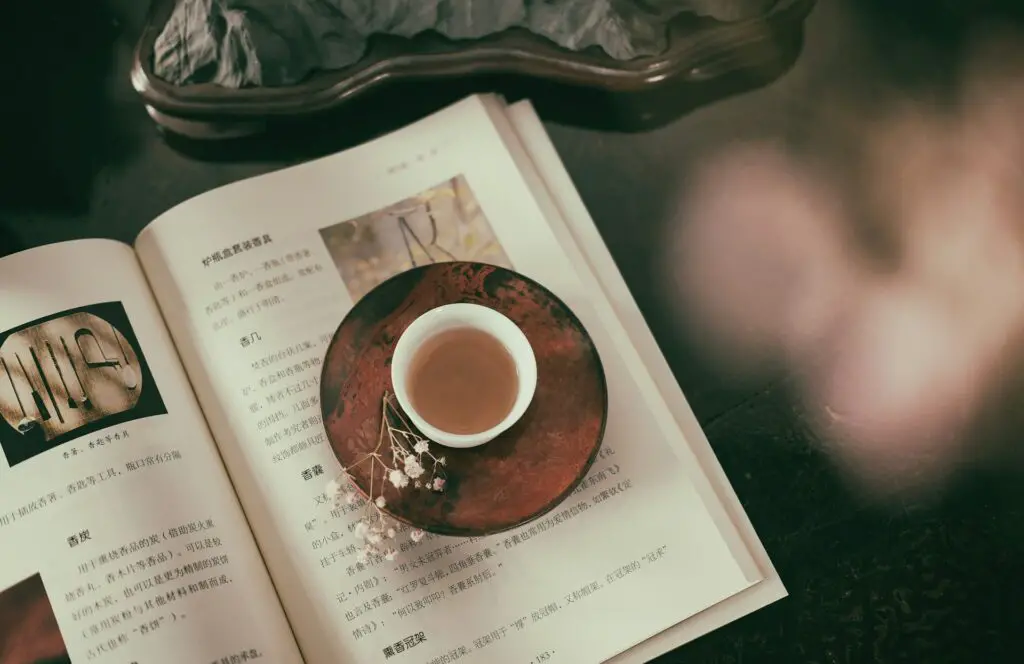In the fast-paced world we live in, finding natural ways to reduce stress and anxiety is more important than ever. Tea, one of the most ancient and widely enjoyed beverages worldwide, is renowned not only for its soothing qualities but also for its potential benefits in alleviating anxiety. Here, we explore a variety of teas known for their calming effects, discussing their properties, flavors, and how they can help ease the mind.
Chamomile Tea
Chamomile tea is perhaps the most famous herbal tea for relaxation and stress relief. It is made from the flowers of the Chamomile plant and has been used for centuries as a natural remedy to reduce anxiety, promote sleep, and even alleviate headaches. The calming effects of chamomile tea are attributed to an antioxidant called apigenin, which binds to certain receptors in the brain that may decrease anxiety and initiate sleep.
Green Tea
Green tea, rich in antioxidants and amino acids, offers a unique approach to tackling anxiety.
One of its key components is L-theanine, an amino acid that promotes relaxation and improves focus without causing drowsiness. Studies have shown that L-theanine can help to increase alpha waves in the brain, which are linked to calm, alert states of mind. Thus, a moderate consumption of green tea could help in maintaining a calm yet alert state.
Peppermint Tea
Peppermint tea, with its refreshing and minty flavor, is not only invigorating but also remarkably soothing for the mind and body. Peppermint is known to naturally relax muscles, ease pain, and reduce symptoms that stress and anxiety may cause. Its menthol content is a natural muscle relaxant, contributing to an overall feeling of calm.
Lavender Tea
Lavender is famed for its aromatic and therapeutic properties, often used in aromatherapy for relaxation. Lavender tea made from the buds of the lavender plant can help alleviate anxiety, soothe nervousness, and improve sleep quality. Drinking lavender tea before bedtime can help unwind the mind and decrease stress levels.
Lemon Balm Tea
Lemon balm, a member of the mint family with a mild lemon aroma, is used in traditional medicine to treat both anxiety and insomnia. It has been shown to improve mood and cognitive function by increasing the activity of neurotransmitters that promote relaxation.
Lemon balm tea may help in reducing anxiety and its related symptoms such as nervousness and excitability.
Valerian Root Tea
Valerian root is well-known for its sedative qualities and is often used as a sleep aid. Valerian root tea can also help in reducing anxiety by interacting with gamma-aminobutyric acid (GABA), a chemical messenger that helps regulate nerve impulses in your brain and nervous system. Researchers have found that valerian extract can produce calming effects that manifest significantly in reducing anxiety.
Passionflower Tea
Passionflower tea is another excellent choice for anxiety relief. It boosts the levels of GABA in the brain, which lowers brain activity and may help you relax and sleep better. Historically, passionflower has been used to treat anxiety and other health conditions. Its calming effect makes it a popular drink before bedtime.
While these teas offer potential benefits for anxiety relief, it’s important to note that they are not a cure for chronic anxiety disorders. They should be used as a complementary treatment to professional medical advice. However, incorporating these soothing teas into your daily routine can be a delightful and beneficial way to manage everyday stress and anxiety. Whether you’re seeking a moment of calm or a night of restful sleep, there’s a tea on this list that can help enhance your relaxation regimen.
Expanding Your Tea Selection for Anxiety Relief
Holy Basil (Tulsi) Tea
Holy Basil, or Tulsi, is revered in Ayurvedic medicine for its healing properties. This herb is an adaptogen, meaning it helps the body adapt to stress and promotes mental balance. Consuming Holy Basil tea may lower stress hormone levels, specifically cortisol, thereby reducing anxiety and its associated symptoms. Its earthy and slightly sweet flavor is not only soothing but also a delightful sensory experience.
Ginger Tea
Ginger tea, with its spicy and invigorating flavor, is commonly used to aid digestion and reduce nausea, but it’s also beneficial for calming nerves. The warming properties of ginger can provide comfort and relaxation, helping to soothe the mind and relieve emotional tension. Regular consumption of ginger tea might also support overall mental health thanks to its antioxidants that fight oxidative stress.
Rose Tea
Made from the petals and buds of the rose plant, rose tea offers a floral aroma that can have a soothing effect on the mind. It is rich in polyphenols and other antioxidants, which can help reduce anxiety and relax the nervous system. Drinking rose tea can also elevate mood and provide relief from menstrual discomfort, which can indirectly alleviate stress.
Ashwagandha Tea
Ashwagandha is another potent adaptogen that is traditionally used in Ayurvedic medicine to increase energy and reduce stress. As a tea, ashwagandha can help stabilize mood and support adrenal health, which is crucial for managing stress and anxiety levels. Its slightly bitter and earthy taste can be an acquired taste but is often appreciated for its profound calming effects.
Oat Straw Tea
Oat straw, made from the green stems and leaves of the unripe oat plant, is a nourishing drink that can help improve mental performance and reduce anxiety. It is high in vitamins and minerals, particularly magnesium, which is often referred to as the ‘relaxation mineral’. Oat straw tea helps in soothing the nervous system, thereby creating a calming effect.
Kava Tea
Kava tea is well-known in the Pacific Islands for its sedative and anesthetic properties. It’s made from the roots of the kava plant and is often used for its potent anti-anxiety effects. Kava works by affecting neurotransmitter levels in the brain that calm the mind and can relieve symptoms of anxiety. However, due to its strength and potential side effects, it should be used with caution and ideally under medical advice.
Practical Tips for Enjoying Your Tea
When selecting teas for anxiety relief, it’s best to opt for organic and naturally sourced products to avoid the ingestion of pesticides and chemicals that could counteract their health benefits. Brewing your tea properly is also crucial; follow the recommended steeping times to ensure that the beneficial compounds are effectively extracted.
Finally, the ritual of preparing and enjoying a cup of tea itself can be incredibly soothing. The act of slowing down, breathing in the aromatic steam, and sipping slowly is a form of mindfulness that can reduce stress on its own. Pairing these teas with a quiet, comfortable setting can enhance their anxiety-relieving properties and offer a peaceful break in your day.
Whether you’re drawn to the floral notes of rose tea, the earthiness of holy basil, or the soothing properties of chamomile, there’s a variety of options to explore. By incorporating these teas into your daily routine, you can enjoy a natural and enjoyable way to ease your mind and soothe your spirit.




